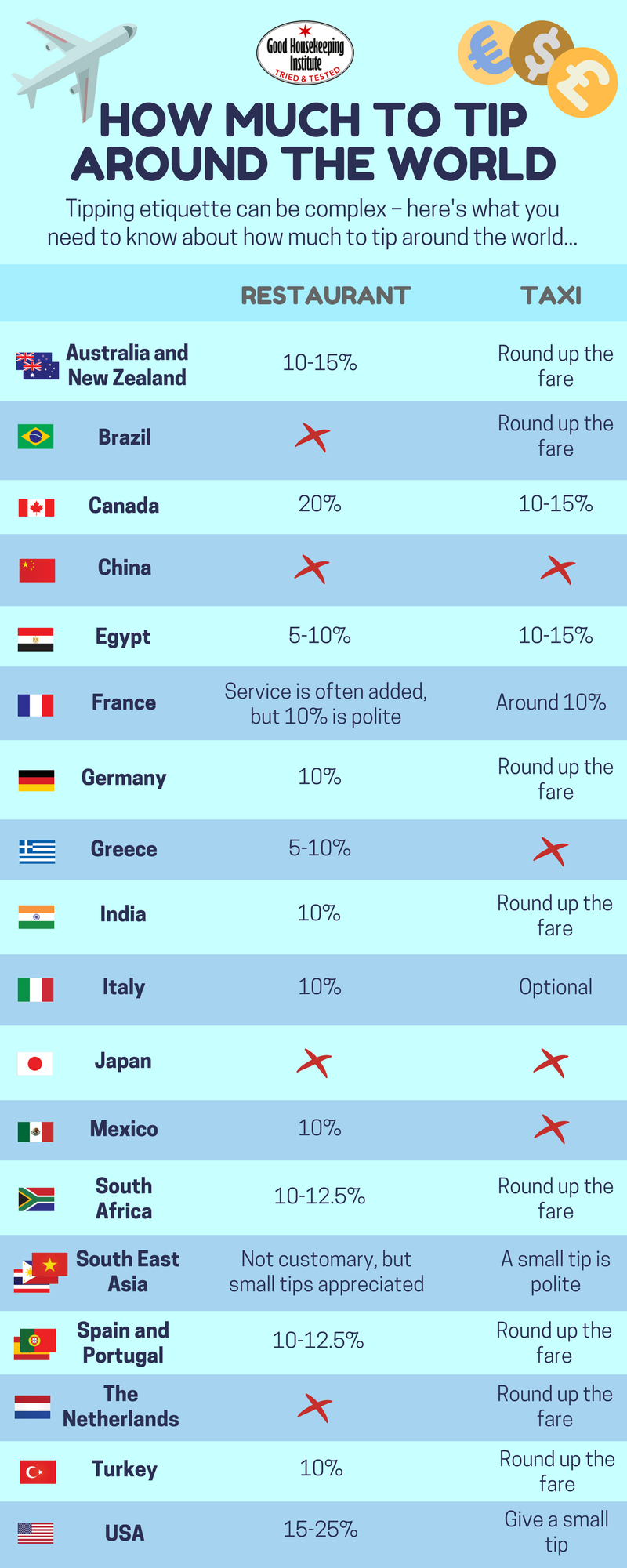How much should you tip in different countries around the world?
Get it wrong and you could cause some serious offence

The art of tipping has always been a tricky one to master. When should you do it? When not? How much should you leave?
And surprisingly, these are all questions which still cause widespread unease, especially when abroad.
A dilemma that strikes every holiday maker, tipping might be customary in most Western nations but in other parts of the world, if you leave money on the table post-meal youcould run the risk of offending staff.
Luckily though, Good Housekeeping Institute has put together a handy infographic to help you get it right this summer.
Perhaps unsurprisingly, the U.S. topped the list with the biggest restaurant tip with wait staff expecting to be left anywhere between 15 and 25 per cent of the bill.
While Spain, Portugal, South Africa, Australia and New Zealand fell close behind with diners anticipated to leave between 10 and 15 per cent.
The information also reveals that tipping is not expected in many South East Asian countries but is appreciated.

And that service is already often included in the total cost of a meal in France, although many still leave a 10 per cent tip out of courtesy.
However in Japan and China, tipping in restaurants and taxis are both frowned upon and should be avoided.
“In Japan, there is a no-tipping culture and you may offend your waiter if you try to give him some money, while in America, tips are very much expected, and it’s rude if you don’t leave anything,” Sara Benwell, consumer editor at Good Housekeeping explained.
She also added that while most countries don’t expect you to leave a tip at the bar, America is an exception where it’s customary to leave $1 per drink.
Of course, all this extra tipping can add up so it’s important to carefully investigate your destination of choice before travelling. Otherwise, you could end up seriously out of pocket.
“You could find yourself having to pay a fortune in unexpected currency withdrawals,” Benwell said.
“In places like America, for example, forgetting tips when you’re budgeting could see you spending almost 25% more in local currency than you planned for.
“Making up the shortfall while you’re abroad will likely lead to high charges on cash withdrawals and poor exchange rates, making your holiday far more expensive than it needed to be.”
Join our commenting forum
Join thought-provoking conversations, follow other Independent readers and see their replies
Comments
Bookmark popover
Removed from bookmarks